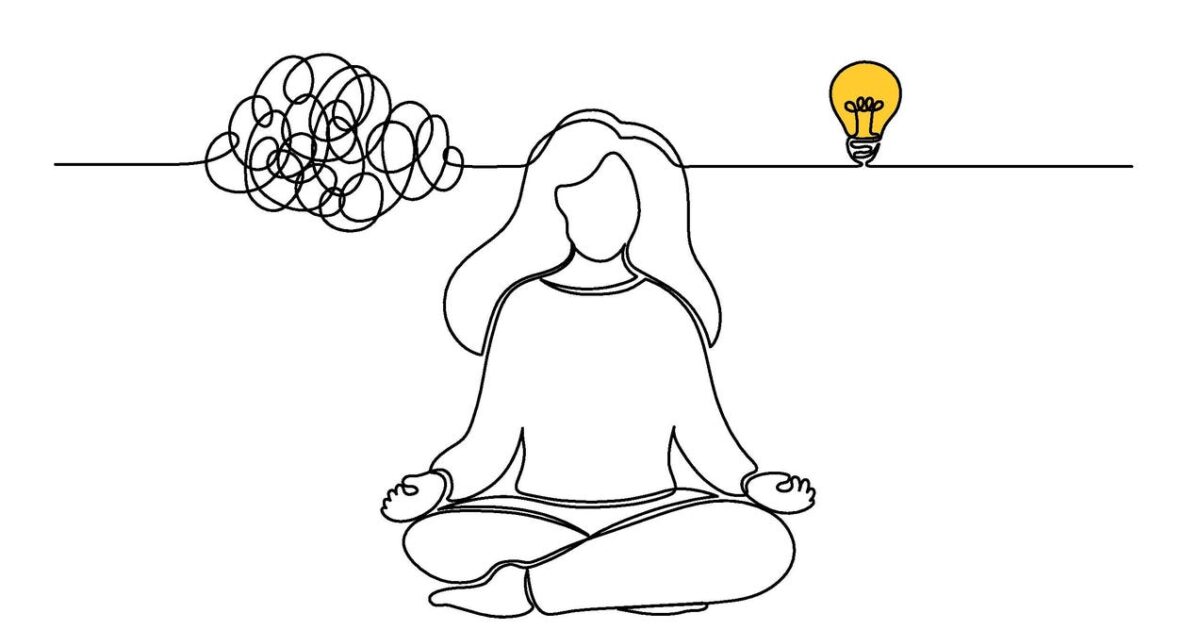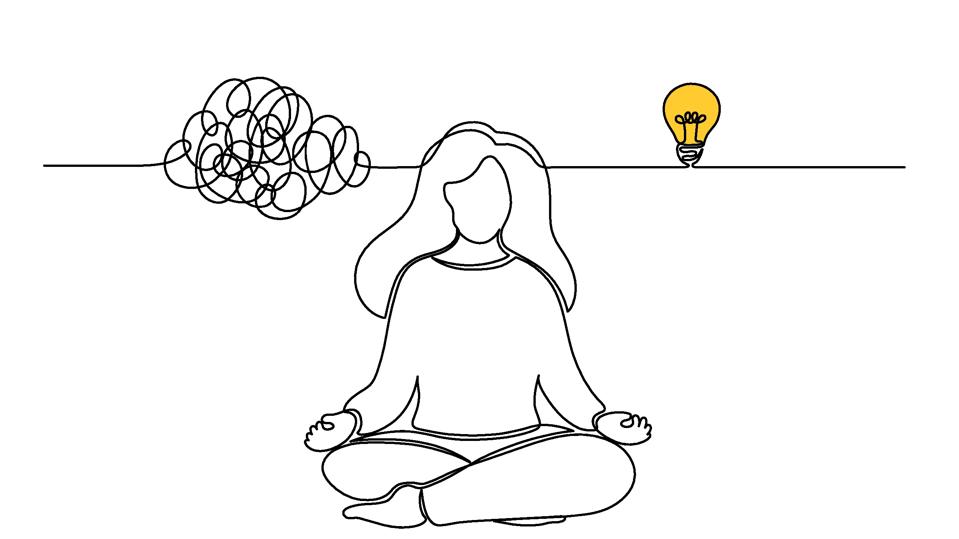1 Simple Way To Boost Focus When You’re Stressed, By A Psychologist

Amidst all the noise about productivity hacks and beating procrastination, you might be overlooking the simplest habit that actually improves focus.
getty
Have you ever felt like your mind is constantly wandering and the harder you try to concentrate, the more stressed you get? If you relate to this, know that you are not alone.
Many of us struggle to focus today. A major issue that arises when trying to regain our focus is that most strategies for improving attention can sometimes backfire by increasing the stress we feel.
A 2019 study published in Nature Communications found that the way information is created and consumed today is a major contributing factor in accelerating this problem.
With news updates pushed to our phones every second and social media amplifying emotional reactions in real time, our collective attention has become fragmented and short-lived.
It is now very common for popular topics to rise and fade faster than ever before. This happens because our limited attention is being pulled in countless directions at once, pushing us into shorter cycles of focus.
One effective way to remedy this is through mindfulness meditation. And no, this is not just a wellness cliché.
A 2025 study investigated how mindfulness meditation influences both attention and physiological arousal. Researchers measured changes in alpha brainwave activity using EEG, as well as skin conductance levels (SCL) as an indicator of arousal.
Participants engaged in mindfulness meditation sessions, which were compared to resting states, and the study also examined whether regular meditation practice led to differences in these measures over time.
The aim was to learn whether the effects of mindfulness are driven more by attentional processes or by changes in arousal, with a combination of neural and physiological markers.
Here are three findings from the 2025 study that highlight how mindfulness meditation proves to be an effective way to restore focus.
1. It Trains The Brain To Tune Out Distractions
When distractions feel relentless, be it a ping on your phone, a Slack notification at work or an Instagram reel autoplaying when you only meant to check one message, they steal more than just your time.
Each interruption you face forces your brain to disengage from what you were doing and then work harder to refocus. This constant switching between tasks can create an attention residue, meaning a part of your mind stays stuck on the last distraction.
Eventually, these micro-shifts in attention pile up and leave you feeling mentally exhausted even if you couldn’t get through too many tasks. In this way, these distractions drain your energy more than you realize.
The harder you push yourself to ignore these interruptions, the more scattered your focus can get. Mindfulness meditation can help counter this in a very simple way, because it changes how the brain itself responds to them.
In the 2025 study, researchers observed a reduction in alpha wave amplitude when the participants were meditating. As alpha waves are closely tied to mind-wandering and the brain’s tendency to drift, a decrease indicates the brain shifting into a more stable and focused state.
In simpler terms, your mind becomes less scattered and engaged in the present moment. Your brain is less likely to “wander off” and more capable of filtering out unimportant inputs.
Mindfulness meditation essentially trains your brain’s attentional system to stop reacting automatically to every signal or stimulus.
In effect, this could look like a phone notification popping up for you at an inconvenient time, yet instead of instantly shifting focus, your brain simply acknowledges it without following along. You learn how to discern between which thought deserves your immediate attention and what can wait.
2. It Improves Focus Without Stress Levels Rising
Many a time, attempts to improve focus can end up making you feel even more stressed. When you try to push away every distracting thought, you might find yourself obsessing over it more.
To fix this, you might turn to different productivity hacks, say, you time every task, force long work sprints or meticulously track your output. While these may seem helpful, they are likely to cause you more stress than ease it if not done mindfully.
By becoming hyper-aware of how much you’re supposed to be concentrating, you create more pressure for yourself.
Every time you slip or deviate from the schedule, you might feel like you’ve failed. The stress of “staying on track” can outweigh that of the task itself.
What you really need is a state where attention sharpens naturally, without the added burden of strain. This is exactly what the researchers of the 2025 study found. During a mindfulness breathing exercise, participants’ brains showed increased activity in regions tied to sustained attention while, at the same time, their physiological arousal decreased.
This dual effect is important. It means focus was strengthened, but this happened without the stress response that often accompanies forced concentration.
This means that meditation allowed participants to stay engaged without tipping into the mental tension that rigid productivity strategies can create. Essentially, your brain is trained to sustain attention naturally without having to micromanage every thought.
3. Your Brain Becomes More Balanced With Consistent Practice
It’s a well-known fact that consistency and repetition bring results in any aspect of life. It’s the same with mindfulness meditation, and the 2025 study backs this up.
In the study, researchers found that participants who practiced 15 minutes of mindfulness meditation daily over six weeks showed changes in brain activity linked to sustained attention.
Gradually this repeated practice trained their minds to stay engaged without strain. This highlights that sustained focus is a skill that strengthens through gentle, but consistent inner effort. Even short meditation sessions can turn out to be helpful. What’s more important is to be regular to see real long-term benefits.
So, rather than forcing long sessions or overloading yourself with productivity hacks, try short but consistent meditation sessions. Just a few minutes daily can also do wonders in helping your attention naturally grow stronger over time.
Shift Your Awareness To The Present
It’s easy to tune out advice to meditate, especially since it’s suggested so frequently in the mental health community that it can start to feel redundant.
For many, hearing “just meditate” can feel frustrating or even dismissive. It can feel like another vague tip that doesn’t really fit into the chaos of daily life. However, sometimes, the simplest of tools — and ones that require patience — can actually turn out to be the most transformative.
You might be well aware of how much the shift towards a more dominantly digital world plays a part in our changing attention spans. This makes it all the more important to recognize just how necessary improving focus has become. It’s easy to assume that improving focus is only about work or productivity, since it’s often linked to these areas, but it’s really about how we direct our attention in all aspects of life.
Being fully aware of the present moment can be as simple as noticing the little details that make life rich, like the warmth of a conversation or even just the simple joy of savoring a meal you love.
When your mind is anchored in awareness rather than distraction, you start living with clarity, and that directs your focus where it should be. Living in such a way allows you to enjoy life as it happens, as opposed to realizing its value later, in hindsight.
By then, the moment has passed and only leaves behind a sense of longing for what you didn’t fully notice. Developing this kind of focus helps truly experience and appreciate life as it unfolds for you.
Take the science-backed Mindful Attention Awareness Scale to find out how present and aware you really are in your daily life.

